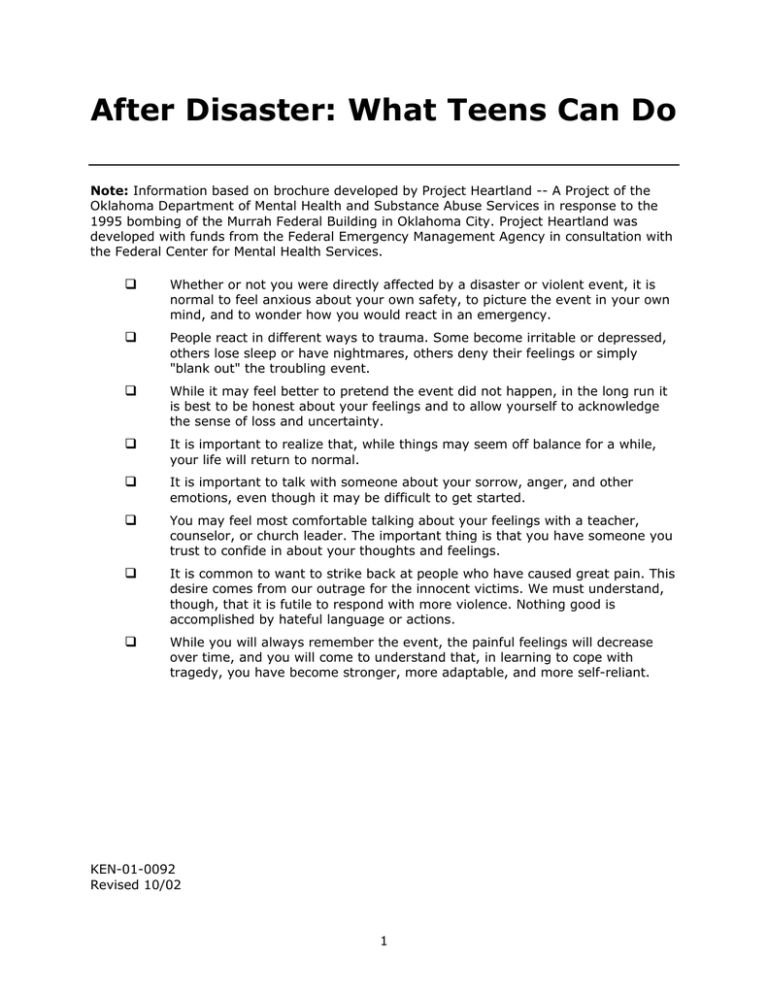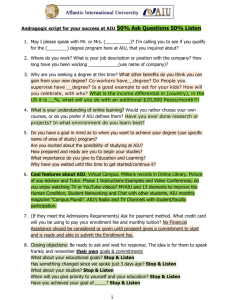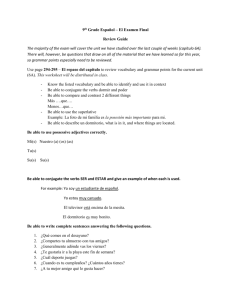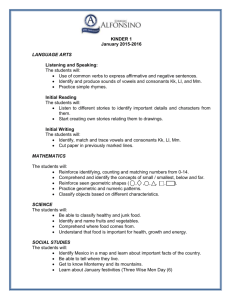After Disaster: What Teens Can Do
advertisement

After Disaster: What Teens Can Do Note: Information based on brochure developed by Project Heartland -- A Project of the Oklahoma Department of Mental Health and Substance Abuse Services in response to the 1995 bombing of the Murrah Federal Building in Oklahoma City. Project Heartland was developed with funds from the Federal Emergency Management Agency in consultation with the Federal Center for Mental Health Services. Whether or not you were directly affected by a disaster or violent event, it is normal to feel anxious about your own safety, to picture the event in your own mind, and to wonder how you would react in an emergency. People react in different ways to trauma. Some become irritable or depressed, others lose sleep or have nightmares, others deny their feelings or simply "blank out" the troubling event. While it may feel better to pretend the event did not happen, in the long run it is best to be honest about your feelings and to allow yourself to acknowledge the sense of loss and uncertainty. It is important to realize that, while things may seem off balance for a while, your life will return to normal. It is important to talk with someone about your sorrow, anger, and other emotions, even though it may be difficult to get started. You may feel most comfortable talking about your feelings with a teacher, counselor, or church leader. The important thing is that you have someone you trust to confide in about your thoughts and feelings. It is common to want to strike back at people who have caused great pain. This desire comes from our outrage for the innocent victims. We must understand, though, that it is futile to respond with more violence. Nothing good is accomplished by hateful language or actions. While you will always remember the event, the painful feelings will decrease over time, and you will come to understand that, in learning to cope with tragedy, you have become stronger, more adaptable, and more self-reliant. KEN-01-0092 Revised 10/02 1 Después de un Desastre: Lo Que Pueden Hacer Los Adolescentes Nota: La información es basada de un folleto creado por Proyecto Heartland – Un proyecto del Departamento de Salud Mental y Servicios del Abuso de Substancias de Oklahoma en respondencia al bombeo de 1995 del edificio federal Murrah en Oklahoma City. Proyecto Heartland fue creado con fondos de la Agencia Federal para el Manejo de Emergencias en consultación con el Centro Federal para Servicios de la Salud Mental. Sea o no directamente afectado usted por un desastre o evento violento, es normal sentirse ansioso de su propia protección, imaginarse el evento en su mente, y preguntar como usted podría reaccionar en una emergencia. Gente reacciona diferentemente a trauma. Unas personas se ponen irritable y deprimidas, otros pierden sueno o tiene pesadillas, otros niegan sus sentimientos o simplemente “olvidan” el evento turbado. Se puede sentir mejor fingiendo que el evento nunca paso, pero en el futuro es mejor ser honesto de sus emociones y reconocer el sentido de perdida y incertidumbre. Es importante realizar que las cosas están desbalanciadas por ahora pero van a regresar a normal. Es importante hablar con alguien de su perdida, enojo, o otras emociones, lo más difícil es empezar a hablar. Usted talvez se sienta mas a gusto hablando con los maestros, consejeros, o alguien de la iglesia. La cosa más importante es que tenga una persona en que usted puede dar confianza de sus emociones y pensamiento. Es común tratar de atacar las personas de los han causado dolor intenso. Este deseo viene de nuestro enojo en parte de las victimas inocentes. Tenemos que entender que es inútil responder con mas violencia. Nada bueno es hecho con palabras o acciones de odio. Usted siempre se va a recordar el evento, las emociones de dolor van a decrecer con tiempo, y usted va a entender que con tragedias usted se hace mas fuerte, más adaptable, y más seguro de usted. 2







